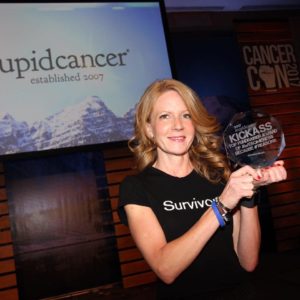It’s Monday morning in the virtual neighborhood. You think it would be predictable but it’s not. You’d also think that being forced to stay inside during the pandemic would mean same old, same old. That has not been my experience.
With mug in hand, I click the link, and the Luminary coffee chat begins. Luminary is a collaboration space primarily for women entrepreneurs and professionals. They now offer a digital membership and brilliantly keep the community going, connecting, and thinking outside the box.”
I don’t recognize anyone on the call which is not uncommon. I was only a member for a month before co-working morphed into Zooming. The ice breaker this morning is “What was the best part of your weekend?”
I think taking a 1.2-mile walk is certainly a contender for me but it’s Shannon Wyant’s turn to share. She chooses finding a safe running route through Manhattan as her highlight. It’s hard, she explains, to train for the NYC Marathon when you’re trying to avoid people altogether.
(Training for a marathon? I quickly change my original response from “walking” to something involving food.)
Shannon also casually mentions she’s running for charity: Stupid Cancer, a non-profit that connects teens and young adults to age appropriate cancer-related resources and, importantly, to each other. According to the organization, 77,000 young adults, ages 15-39, are diagnosed with cancer in the United States each year.
Welcome to a club you didn’t ask to join. – Stupid Cancer Home Page
My head spins. It would be bad enough to be diagnosed with cancer at a young age, but how are families dealing with the many challenges of the disease and its treatment — during the pandemic?
Luckily, Shannon agrees to a follow up conversation and here’s what I didn’t expect to learn:
Q: What’s your personal connection to the mission of Stupid Cancer?
A: I first learned about Stupid Cancer when I attended an in-person event they hosted here in NYC in 2016. The founder, Matt Zachary, told his story and it hit me hard. He was diagnosed with cancer the same age and year that I was. Out of desire to end his own isolation, he built Stupid Cancer to connect with other adolescents and young adults (AYA) impacted by cancer. I introduced myself and immediately got involved volunteering and fundraising for Stupid Cancer. Over the past 4 years, I have had the privilege to witness first-hand the power of community in the face of cancer for these young people.
I was diagnosed in 1995, with Stage 3A Hodgkin’s Lymphoma, at age 19. I was treated at the main campus of a cancer center surrounded by patients in their 60s and 70s. Too old for pediatric care, I fell into the wasteland that was adolescent cancer.
With no Google, or FaceBook; no support groups, no age-appropriate resources or information, my fertility was overlooked, my mental health neglected. Friends disappeared – afraid of death and disease, unable to relate, and eager to navigate their own coming of age.
I was 19, fighting for my life, with no one to connect with that “got” what I was going through. As a result, I coped through trial and error, even entering a clinical trial for treatment, too scared to make a decision after a 2nd opinion. Even today, there isn’t sufficient information available for AYAs because it is so under-supported resulting in research gaps in basic biology, treatment, and survivorship. My group reacts differently to certain types of treatments versus other age groups. I had no clue.
For a young adult diagnosed with cancer, to simply have the ability to talk with someone the same age as you, with cancer, is life-changing. Cancer is an isolating disease. The impact of that isolation on a young adult facing cancer can lead to a mental health crisis, suicidality and other negative outcomes, even well after treatment has ended.
Stupid Cancer seeks to change that and to make cancer suck less for adolescents and young adults. I pledge to support them, to ensure that no young adult has to face cancer alone.
Q: Although every person’s situation is unique, are there common challenges for young people after diagnosis?
A: Yes. Not only is cancer the number one disease killer in AYAs, but the cancer incidence in young adults has increased more than any other age group while survival rates have not improved at the same rate. Delayed cancer diagnosis is also disproportionately higher in young adults than any other age group.
So while the focus is on saving your life, this community faces additional and unique challenges due to their cancer occurring during this crucial stage of their personal and social development:
reports higher rates of bankruptcy and more frequently forgo needed medical care due to cost compared to older survivors.
face financial distress exacerbated by nonmedical costs, such as student loans.
have concerns and questions about fertility preservation and reproductive health.
Simply put, the adolescent and young adult cancer community are the most underserved patient population by age and so the list goes on, unfortunately. As you can imagine, this can have an incredibly negative affect on mental health. And though there are some truly remarkable health institutions out there, they don’t always have the resources to provide support for the unique needs of this population. Stupid Cancer seeks to partner with them to bridge that gap.
Q: Are the teens, young adults and parents you connect with expressing any additional concerns during coronavirus?
A: Yes. COVID-19 poses a significant risk for patients in active treatment. Additionally, there are patients post-treatment dealing with permanently compromised immune systems, unsure of how to navigate healthy survivorship during this time. We have heard from patients that are afraid to go into hospitals for treatment. Some who are newly diagnosed and finding themselves on teleconference calls with oncologists discussing the ramifications of delayed surgery or treatment. And then we have a whole group of patients who are experiencing PTSD being in quarantine. One friend in particular, was in isolation for 11 weeks after her stem-cell transplant for Hodgkin’s Lymphoma 10 years ago, and is now finding it very triggering to be in isolation, again.
Thankfully, Stupid Cancer has:
- Ramped up it’s digital outreach offering webinars led by medical and behavioral health experts to provide reliable information related to COVID-19 and cancer.
- Increased the number and frequency of digital Meet-Ups, hosted by community volunteers to offer connection with AYA patients, survivors and care-givers around the globe in the form of virtual coffee breaks, happy hours, as well as arts/craft/writing events and game nights.
- Created a COVID-specific resource page on their website and collaborated with other AYA advocacy organizations to launch CovidAYACancer.org, an online resource for young people with cancer and the health professionals who treat them.
Q: How can anyone reading this help?
A: You can make a life-changing, tax-deductible donation by using this link:
I am choosing to mark a personal cancer milestone by pledging to run the 50th Anniversary New York City Marathon, and raising $25, 000 for Stupid Cancer. Please help me celebrate by providing the potential for other young adults the opportunity to see a similar milestone.
Funds raised will go to providing programming and connection digitally now, and in-person, again, when time allows. Stupid Cancer hosts the world’s largest annual conference dedicated to AYA Cancer: Cancer Con. Each year they provide scholarships and travel grants to ensure that anyone who wants to attend can come. This year they have had to pivot quickly to design an entirely on-line experience. In order to do that they have had to hire resources and support to provide and design an impactful program of events. The power in this, is that it has the potential to reach a larger audience. Your dollars, no matter how many you can contribute, will impact the life of an adolescent or young adult with cancer.
To say it’s humbling is an understatement. Words aren’t adequate to fully describe the impact of stupid cancer. But Shannon isn’t using only words. This survivor is using her emotional and physical experience — and her legs – to raise money that will help teens and young adults feel supported as they run their own race.
Today – April 30th – Shannon Wyant is 25 years cancer free. Now that’s a marathon worthy of a gold medal.






